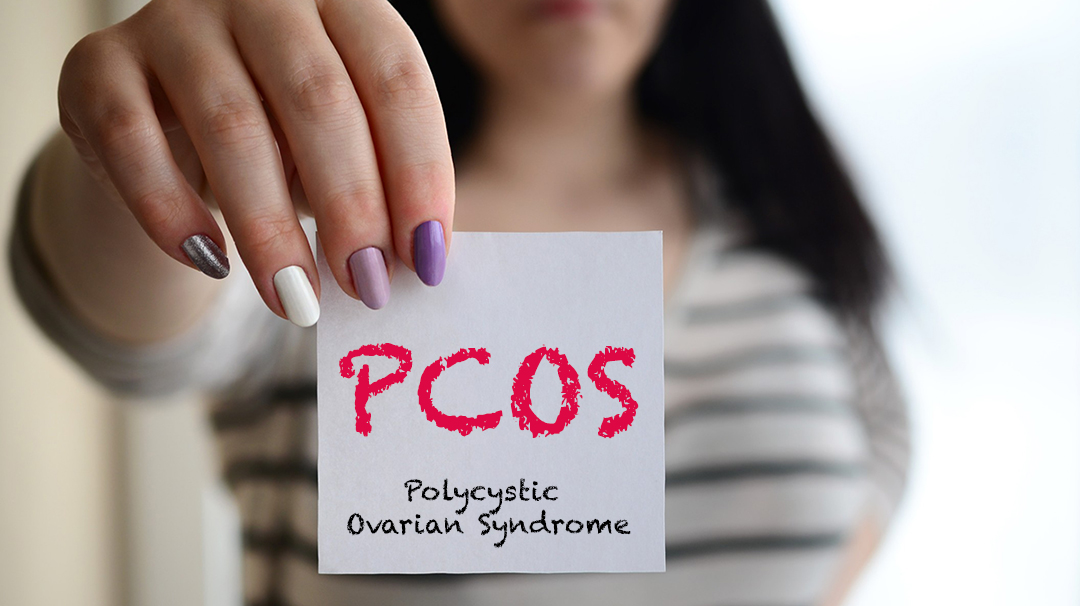As you probably know, PCOS (Polycystic Ovarian Syndrome) is the commonest hormonal problem affecting women of all ages. The manifestations and challenges of PCOS vary depending on your age, but it is not a problem exclusively affecting younger women.
In the young, the problems are predominantly related to weight gain, acne, excess hair growth, irregular cycles, problems getting pregnant. However, in older women, those in perimenopause or menopause, it is often difficulty to losing belly fat, high triglycerides, higher risk for heart disease and stroke.
What is the relationship between the brain and PCOS?
In medicine, PCOS is described as a complex neuroendocrine problem. Neuro, meaning related to the nervous system and endocrine, meaning hormonal.
In PCOS, the predominant hormonal problem is excess androgens (male hormones) and abnormal levels of estrogens and LH (change in LH pulsatility, in medical-speak). However, the underlying hormonal problem in PCOS is insulin resistance. The hormone insulin, which is essential for maintaining optimal blood glucose levels, does not function optimally.
The hormones testosterone, estrogens, progesterone are called neurosteroids. This is because they act on the brain. Therefore any abnormality in these hormones affects brain function.
Brain imaging studies.
A 2016 study reported in the journal Fertility and Sterility used imaging to look at the brains of women with PCOS. When compared to women without PCOS, they had different brain activation in certain areas.
Their brain function improved when the women with PCOS were treated with anti-androgens (Cyproterone acetate in this case) for 16 weeks.
What does this mean for you?
The brain changes in PCOS are not permanent; they are amenable to treatment.
How does insulin resistance manifest?
Insulin resistance manifests as excess body weight, especially belly fat, difficulty losing weight, fatty liver, higher risk for type 2 diabetes, requiring extreme exercise to maintain body composition and hypertension.
Under-appreciated challenges in PCOS:
There are several areas of concern to people with PCOS which are often not adequately addressed. The three important ones that I’d like to highlight are
- Mental health conditions like anxiety and depression in women with PCOS.
- Hypertension in young women with PCOS
- Best way to lose weight in PCOS
1) Anxiety and depression:
Mental health challenges are more common in women with PCOS than in those without PCOS. There are several reasons like the use of birth control pills, imbalance of hormones, higher levels of inflammation. ( YouTube Video)
2) Hypertension:
High blood pressure in young people is often undiagnosed because hypertension does not always have symptoms. That is why it is called a silent killer. Studies using 24-hour ambulatory BP monitoring in very young women with PCOS have shown that their blood pressure does not fall at night, called a “non-dipper” status. Being a “non-dipper” raises your risk of future hypertension, heart disease and stroke.
3) Weight loss in PCOS:
Losing weight in PCOS improves everything. Cycles become regular; androgen levels fall, fertility improves, cholesterol abnormalities get better, and blood pressure reduces.
But the biggest problem is not losing weight; it is maintaining your weight loss.
What is the best way to lose weight in PCOS?
The standard of care recommends a low-calorie diet. But if you have tried that approach, you know that it doesn’t work long-term. You may succeed in losing weight, but weight re-gain is a significant challenge.
The underlying problem in PCOS is insulin resistance, which is an issue with your carbohydrate-insulin metabolism. Therefore, a lower carbohydrate diet along with Time-Restricted-Eating/ Intermittent Fasting may work better for you.
REFERENCES
- Soleman, Remi S., et al. “Does polycystic ovary syndrome affect cognition? A functional magnetic resonance imaging study exploring working memory.” Fertility and sterility 105.5 (2016): 1314-1321.
- Ozgen Saydam, Basak, and Bulent Okan Yildiz. “Polycystic ovary syndrome and brain: An update on structural and functional studies.” The Journal of Clinical Endocrinology & Metabolism 106.2 (2021): e430-e441.
- Rees, D. Aled, et al. “White matter microstructure and cognitive function in young women with polycystic ovary syndrome.” The Journal of Clinical Endocrinology & Metabolism 101.1 (2016): 314-323.
Here is the link to a FREE course, 15 Lessons To Lose Weight With PCOS.

